Artificial Intelligence (AI) is reshaping the real estate sector, particularly in automating document-intensive workflows. Real estate professionals are inundated with numerous documents—leases, loan agreements, contracts, and more. This blog explores how AI-driven automation is revolutionizing real estate operations, making processes faster, more accurate, and less reliant on manual effort.
This article is part of a series on AI in Real Estate
Understanding AI Agents
AI agents are autonomous systems designed to handle tasks traditionally done by humans. Unlike conventional software, these agents can understand context and make intelligent decisions based on the data they process. They combine foundational models from leading AI providers with memory systems and decision-making capabilities, making them powerful tools for real estate professionals.
AI agents can connect to various tools and data sources, enabling them to automate processes like lease abstraction, loan analysis, and contract management. This automation not only improves efficiency but also enhances accuracy, allowing agents to focus on strategic decision-making instead of mundane document processing.
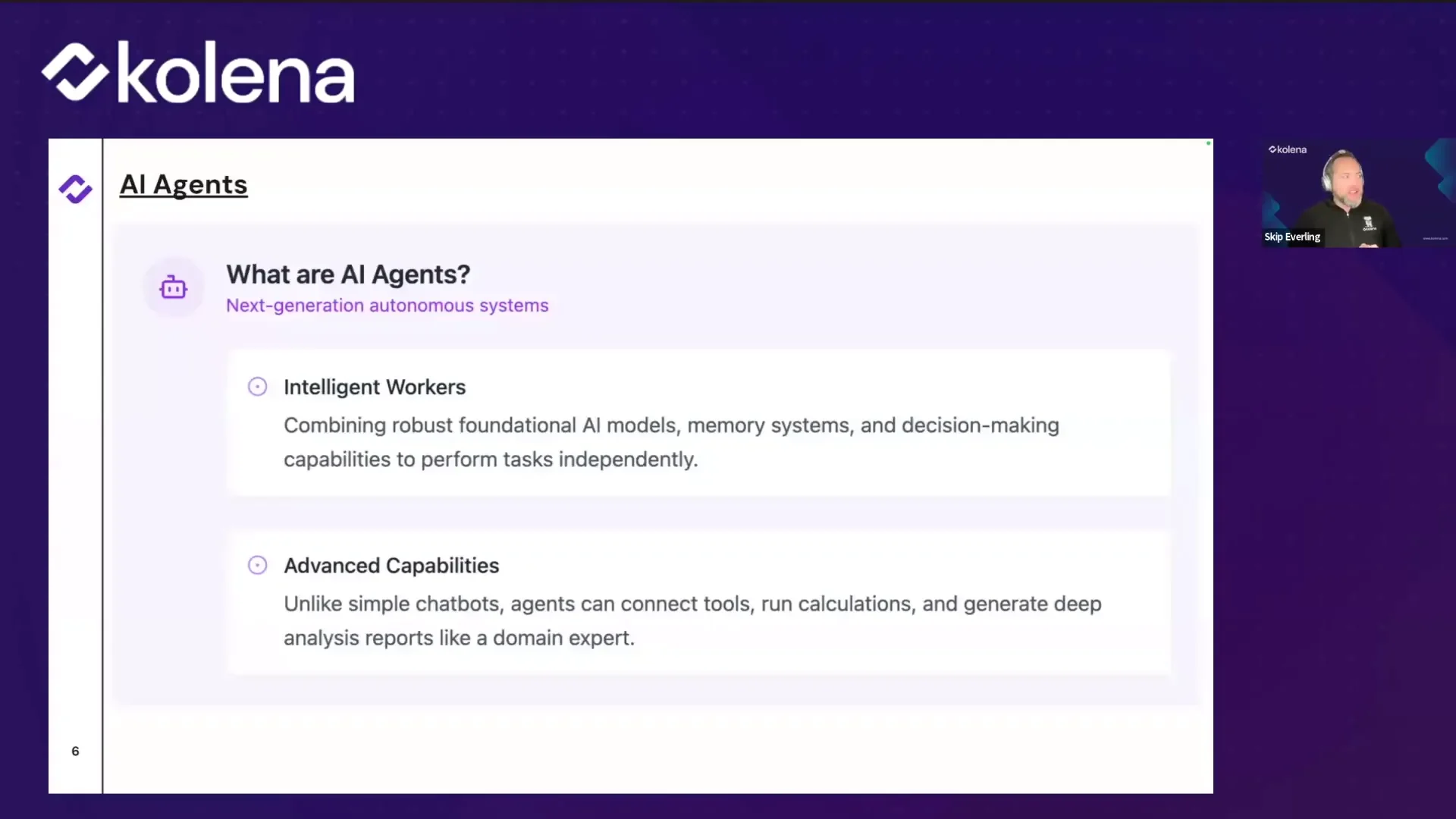
Why Real Estate Needs AI Agents
The real estate industry is document-heavy, requiring constant management of various legal and financial documents. AI agents can significantly cut down processing time—often by up to tenfold—while improving accuracy. Here are some ways AI agents address key challenges in real estate:
- Speed: AI agents can process large volumes of documents quickly, enabling faster decision-making.
- Accuracy: By minimizing human error, AI agents ensure that critical information is extracted correctly.
- Scalability: AI agents allow real estate businesses to scale operations without hiring additional staff.
- Compliance: AI agents can automate compliance checks, ensuring that all necessary legal requirements are met.
- Insights: They can reveal hidden insights from the data, allowing real estate professionals to make informed decisions.
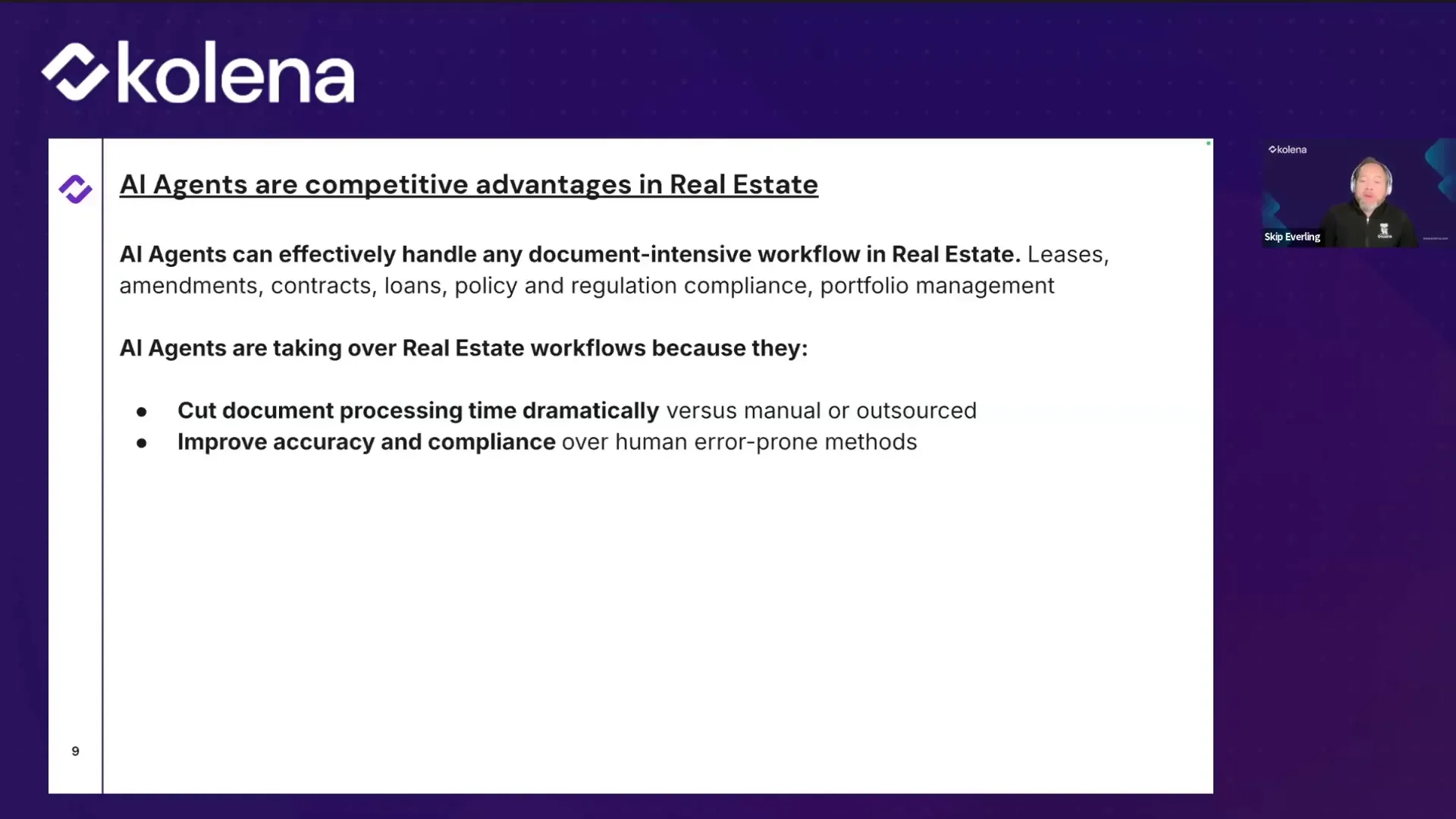
Use Cases for AI in Real Estate
Let’s dive into specific applications of AI agents in real estate, showcasing their potential to transform various processes:
1. Lease Abstraction
Lease abstraction involves extracting key details from lease documents. AI agents can automate this process, identifying critical information like tenant names, lease terms, and payment schedules. This not only saves time but also minimizes the risk of missing important details.
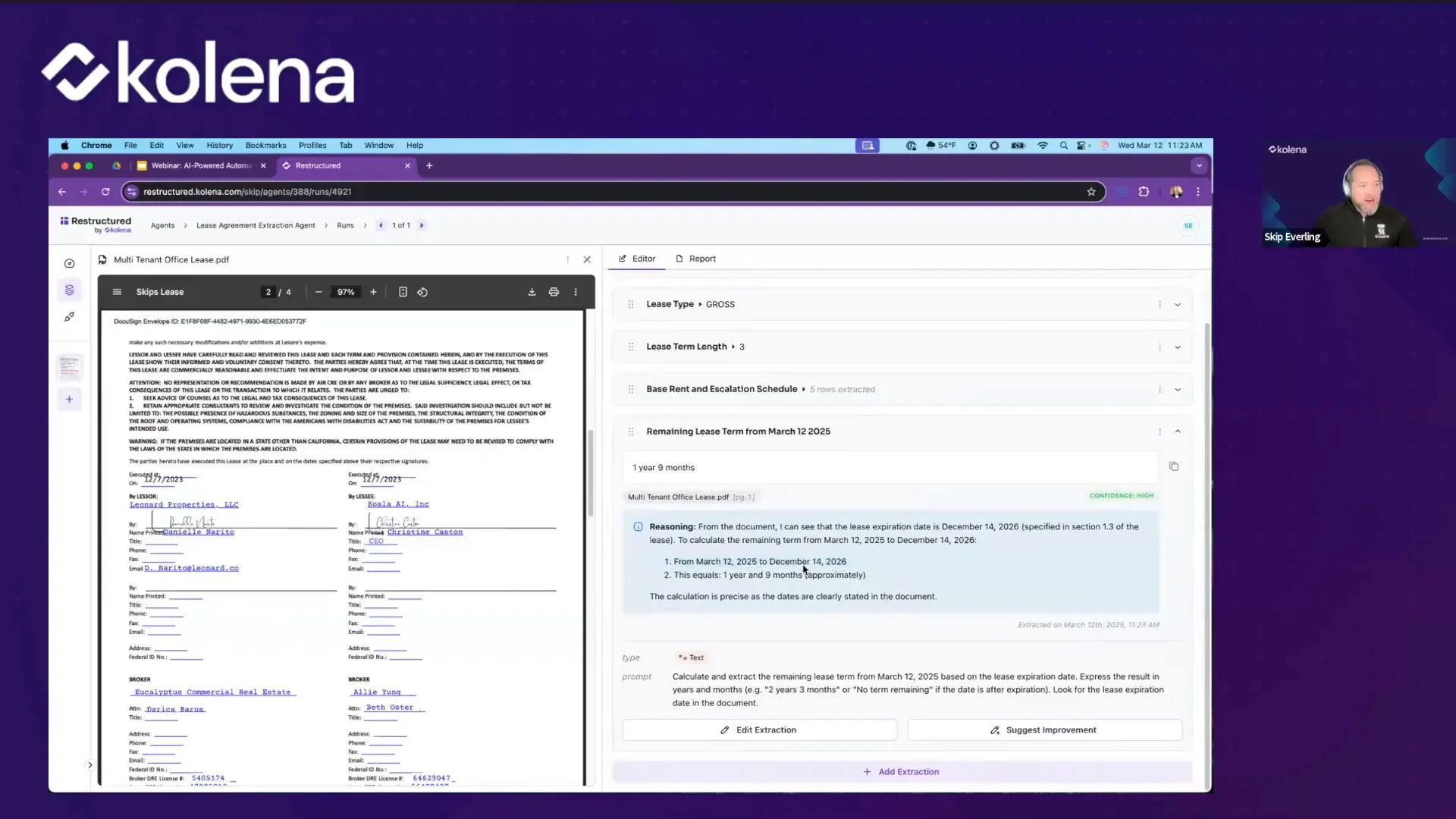
For example, when tasked with extracting the name of a tenant, an AI agent can interpret the request and provide the correct information along with citations from the document, ensuring transparency and accuracy.
2. Loan Analysis
AI agents can analyze loan documents to identify key terms, such as interest rates, repayment schedules, and borrower details. They can also flag unusual clauses that may require closer scrutiny, allowing lenders to focus on high-risk applications.
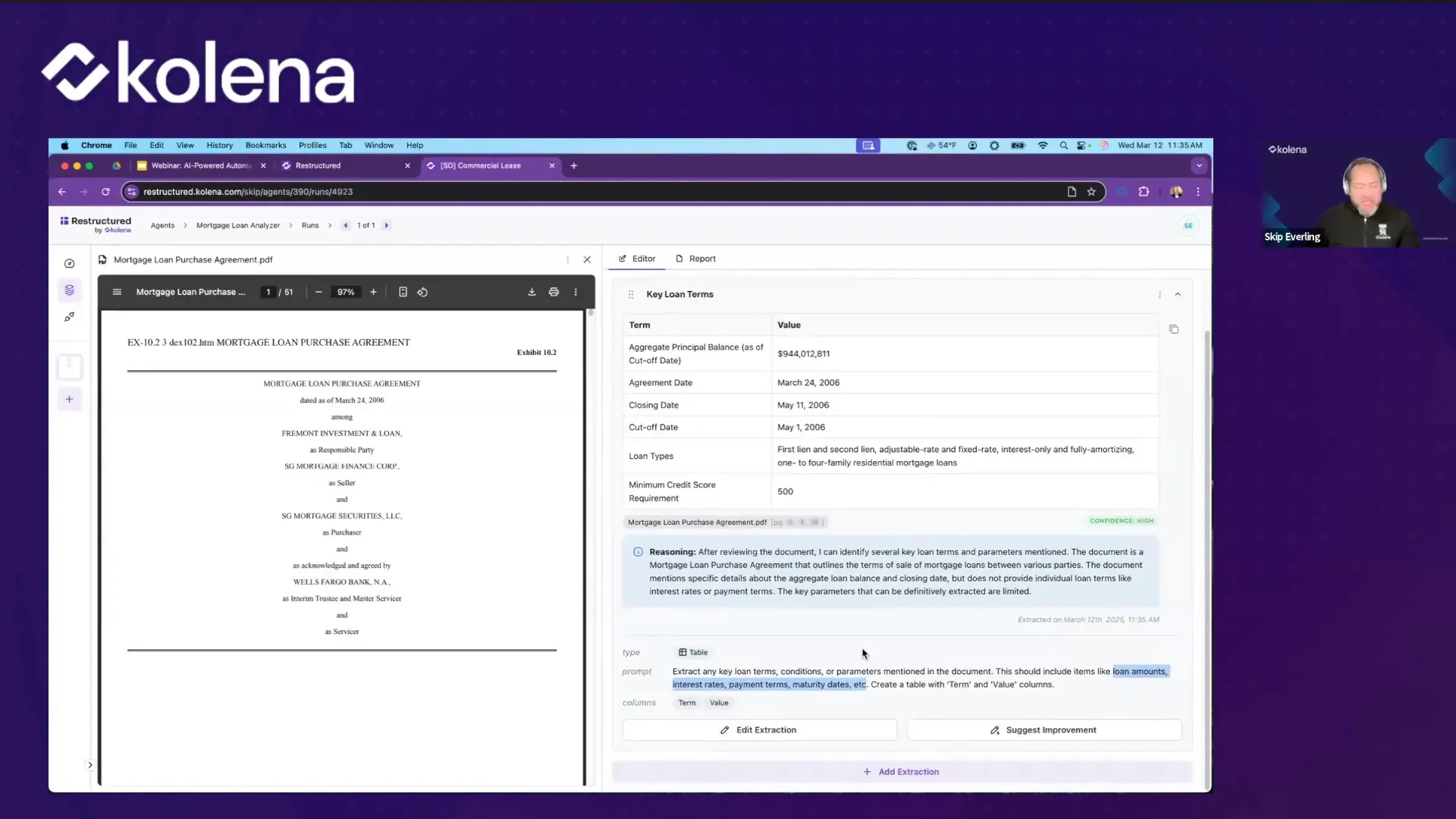
In our demonstrations, we observed how quickly an AI agent could extract loan terms from a 51-page document, making it easier for real estate professionals to evaluate multiple loan applications efficiently.
3. Compliance Management
Compliance in real estate involves ensuring that all documents meet legal and regulatory standards. AI agents can automate compliance checks, reducing the burden on staff and ensuring that all documents are in order.
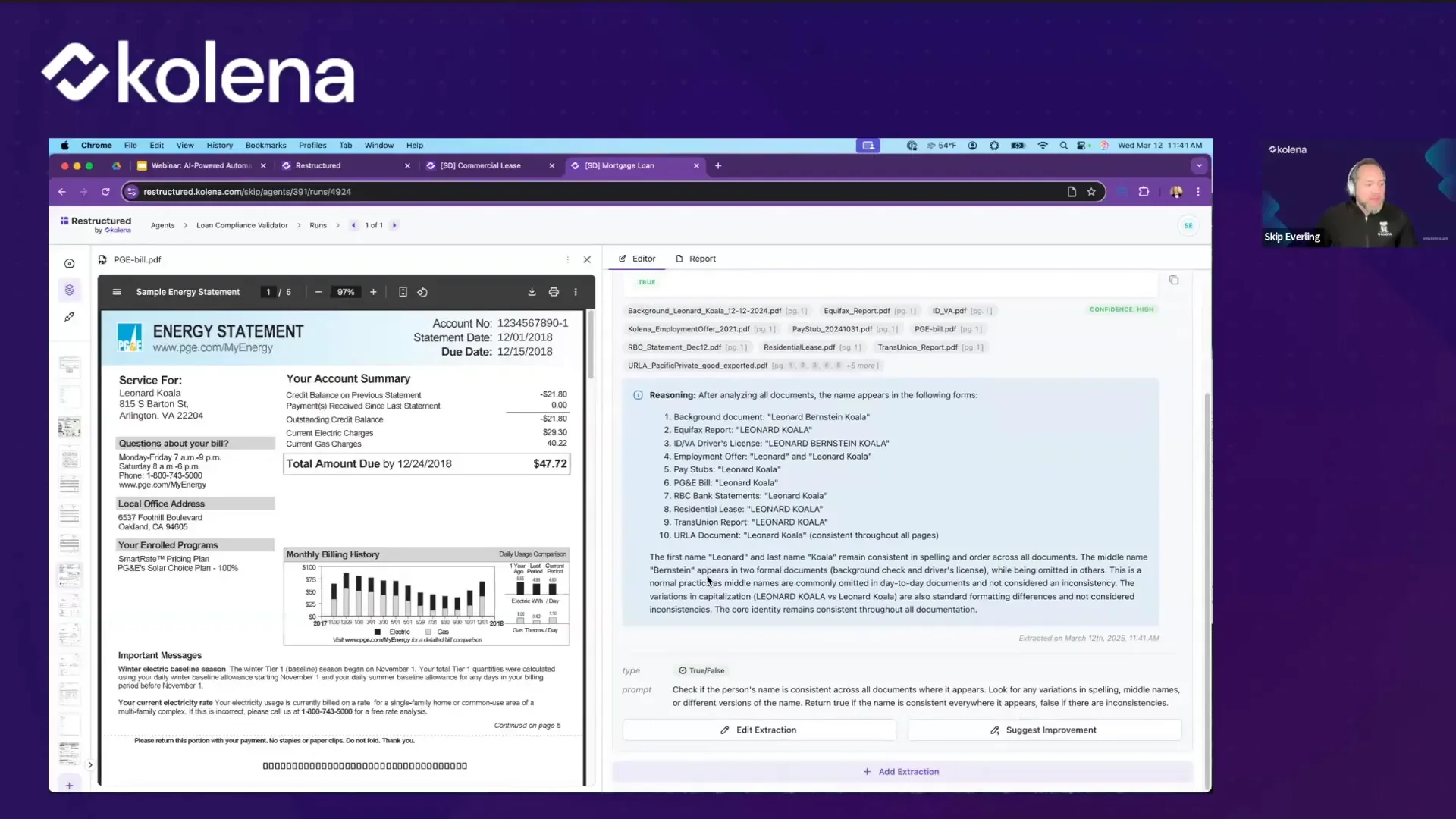
By checking for name consistency across various documents, for instance, AI agents can quickly identify discrepancies that may indicate issues with an application.
4. Contract Management
Contract management can be complex and time-consuming. AI agents simplify this process by automatically extracting and summarizing key contract provisions, ensuring that all parties are aware of their obligations.
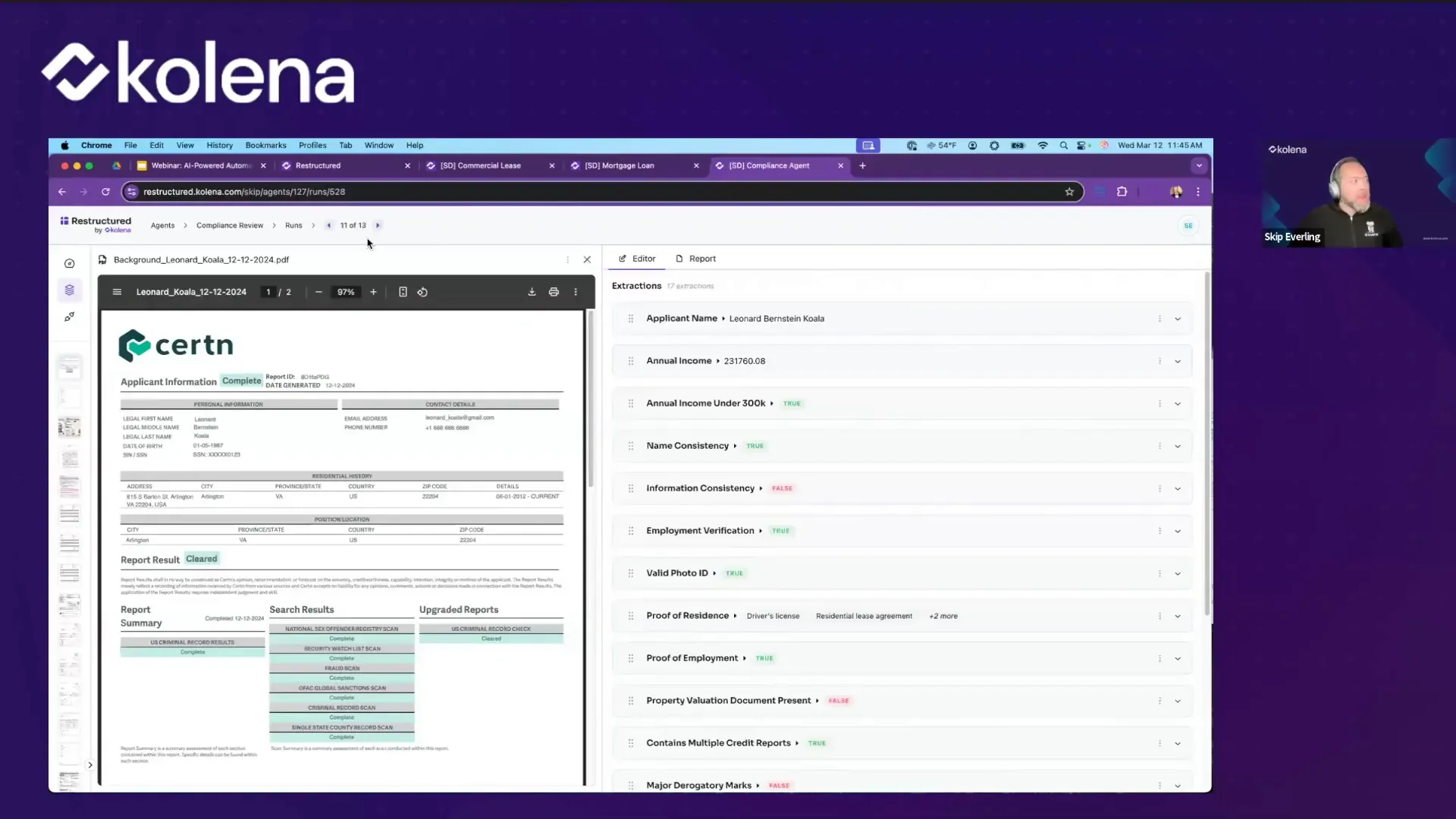
By using AI for contract analysis, real estate professionals can focus on strategic negotiations rather than getting bogged down in the details of contract language.
5. Document Comparison
AI agents excel at comparing documents to identify changes, making them invaluable for managing amendments and updates. They can highlight differences between document versions, ensuring that real estate professionals are always aware of the latest terms.
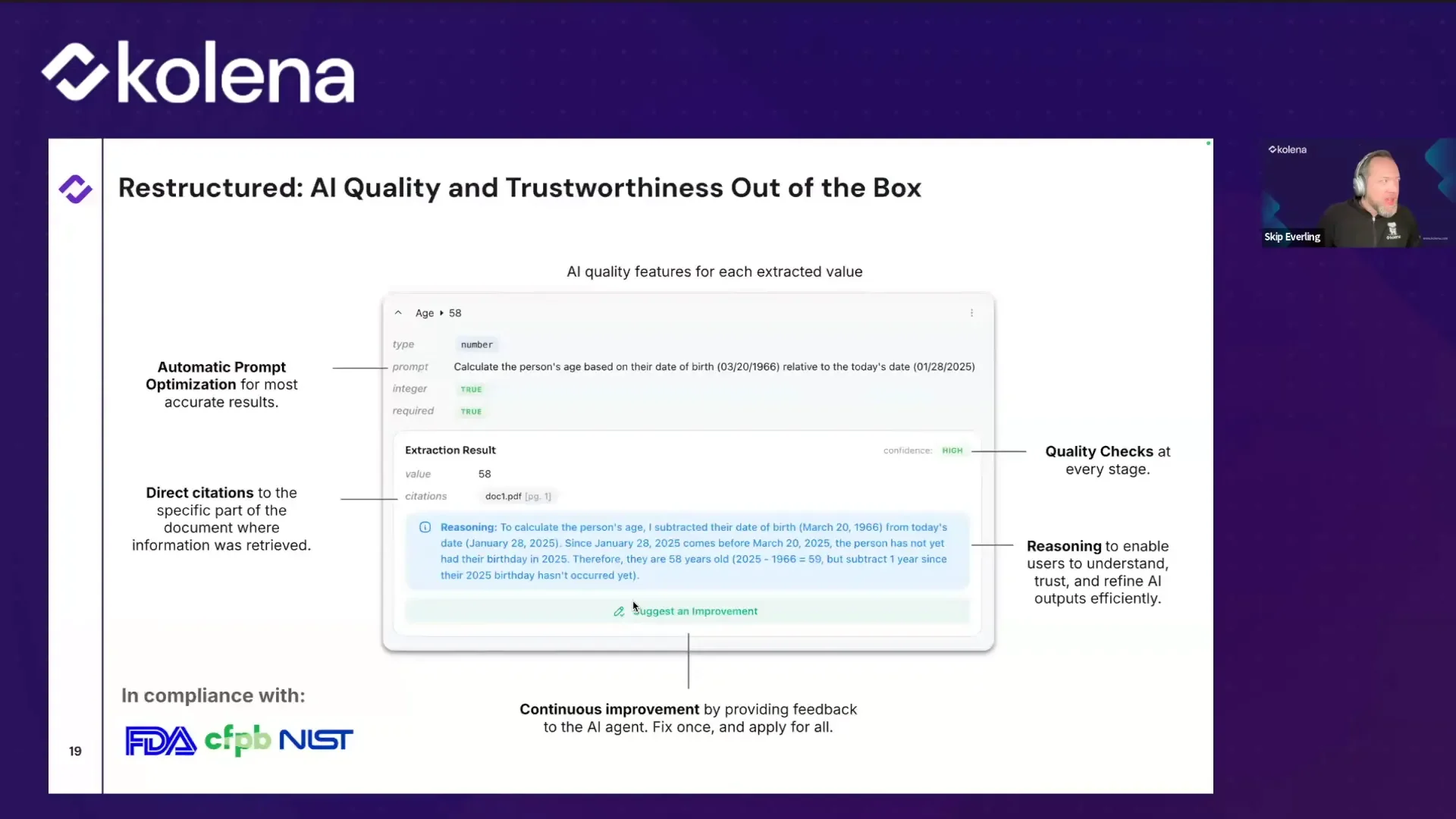
This feature is particularly useful when dealing with multiple versions of contracts or leases, as it allows for quick identification of changes that need to be addressed.
Integrating AI into Your Real Estate Workflow
Integrating AI agents into your real estate operations requires careful planning but can yield significant benefits. Here’s how to get started:
- Identify Key Workflows: Determine which document-intensive processes would benefit most from automation. See examples of workflows here.
- Choose the Right Tools: Select AI platforms that can seamlessly integrate with your existing systems. We recommend Kolena!
- Train Your Team: Ensure that your staff understands how to use AI tools effectively.
- Monitor Performance: Regularly assess the effectiveness of AI agents and make adjustments as necessary.
Conclusion
AI is not just a trend; it’s a transformative force in the real estate industry. By automating document management and enhancing workflow efficiency, AI agents are helping real estate professionals work smarter, not harder. As the industry continues to evolve, those who embrace AI will undoubtedly have a competitive edge.
If you’re ready to explore how AI can revolutionize your real estate operations, consider reaching out to experts in the field. Companies like Kolena are at the forefront of this technology, offering solutions tailored to the needs of real estate professionals.
For more insights, follow us on LinkedIn or check out our YouTube channel for informative content on AI in real estate.
Want to try it for yourself? See it in action Request Access